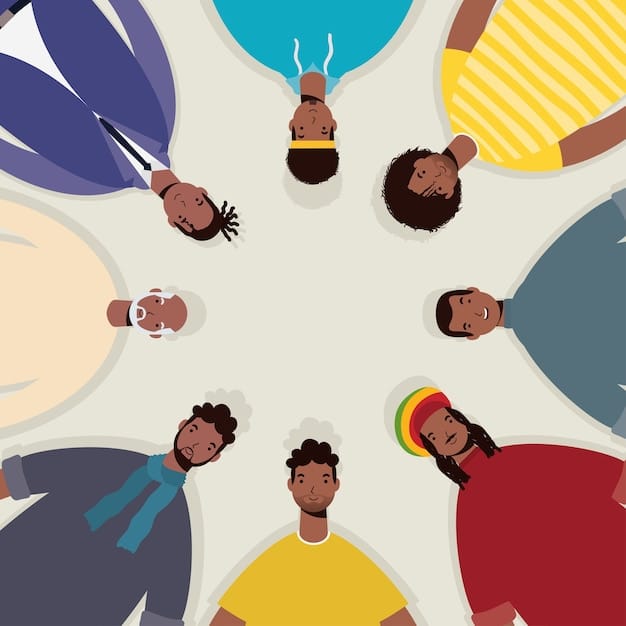The Art of Forgiveness: Healing Emotional Wounds and Letting Go

The Art of Forgiveness involves intentionally releasing feelings of resentment or anger towards someone who has wronged you, paving the way for emotional healing and personal growth.
In a world often marked by conflict and hurt, the ability to forgive stands out as a beacon of hope and healing. Embracing the art of forgiveness is not merely about absolving others; it’s a profound journey of self-liberation, enabling us to let go of resentment and heal emotional wounds that hinder our personal growth.
Understanding Forgiveness: More Than Just Saying “I Forgive You”
Forgiveness is often perceived as a simple act of saying, “I forgive you.” However, the reality is far more nuanced and complex. Understanding what forgiveness truly entails is the first step toward harnessing its transformative power.
The True Definition of Forgiveness
At its core, forgiveness is a conscious, deliberate decision to release feelings of resentment or vengeance toward someone who has harmed you, regardless of whether they deserve your forgiveness.
What Forgiveness Is Not
- L forgetting the incident or minimizing the harm caused.
- L condoning the actions of the person who hurt you.
- L excusing the behavior or pretending it didn’t happen.
Forgiveness is about making the choice to move forward and not let the past define you.
In essence, forgiveness is an act of self-compassion, allowing you to reclaim your inner peace and emotional well-being.
The Psychological Benefits of Forgiveness
The act of forgiving offers profound psychological benefits that extend far beyond simply easing the tension in relationships. It’s a powerful tool for improving mental and emotional health.

Reduced Stress and Anxiety
Holding onto anger and resentment can lead to chronic stress and anxiety. Forgiveness helps to alleviate these feelings by releasing the grip that past hurts have on your present state of mind.
Improved Mental Health
Studies have shown that individuals who practice forgiveness report lower levels of depression and a greater sense of psychological well-being. The ability to forgive fosters a more positive outlook on life.
Better Relationships
While forgiveness is primarily a personal process, it can also positively impact your relationships. It opens the door to reconciliation and deeper understanding with others.
Ultimately, forgiveness is a key component of psychological resilience, enabling you to navigate life’s challenges with greater emotional strength and stability.
Steps to Take on Your Forgiveness Journey
Embarking on the path of forgiveness is a deeply personal journey that requires patience, self-awareness, and a willingness to confront painful emotions. There are several practical steps you can take to facilitate this process.
Acknowledge Your Pain
The first step is to acknowledge the hurt and pain that you’re feeling. It’s essential to allow yourself to experience these emotions without judgment.
Understand the Other Person’s Perspective
Try to see the situation from the other person’s point of view. This doesn’t excuse their behavior but can help you understand the context behind their actions.
Make a Conscious Decision to Forgive
- L Write a letter expressing your feelings (you don’t have to send it).
- L Practice empathy and compassion toward the other person.
- L Set healthy boundaries to protect yourself in the future.
Choosing to forgive is a courageous act that sets you on the path to healing.
By taking these steps, you move closer to releasing the burden of resentment and embracing the freedom that forgiveness offers.
Overcoming Obstacles in the Forgiveness Process
The journey of forgiveness is rarely linear. It’s common to encounter obstacles and challenges along the way. Recognizing these pitfalls and developing strategies to overcome them is crucial for sustained healing.
Dealing with Lingering Anger
Even after making a conscious decision to forgive, feelings of anger may resurface. Acknowledge these feelings without letting them derail your progress.
The Role of Trust
Forgiveness does not automatically restore trust. Rebuilding trust takes time, effort, and consistent behavior from the person who caused the harm. It’s important to manage your expectations and be realistic about the process.
Seeking Professional Help
- L Consider therapy or counseling to work through complex emotions.
- L Join a support group to connect with others who have experienced similar challenges.
- L Practice self-care activities to nurture your emotional well-being.
Overcoming obstacles requires resilience and a commitment to your own healing.
By addressing these challenges with patience and self-compassion, you can deepen your capacity for forgiveness and emotional growth.
Forgiveness in Different Contexts: Relationships, Self, and Society
Forgiveness is not limited to interpersonal relationships. It also plays a vital role in our relationship with ourselves and the broader society. Understanding these different contexts can provide a more holistic view of forgiveness.

Forgiving Yourself
Self-forgiveness is about acknowledging your mistakes, learning from them, and releasing self-blame. It’s an essential component of self-compassion and mental well-being.
Forgiveness in Relationships
In romantic partnerships, friendships, and family dynamics, forgiveness is crucial for maintaining healthy connections. It allows for misunderstandings to be resolved and relationships to grow stronger.
Forgiveness and Societal Healing
On a larger scale, forgiveness can play a role in healing societal wounds caused by injustice and conflict. It requires acknowledging past wrongs and working toward reconciliation.
Forgiveness is a powerful force for healing and transformation at every level.
By extending forgiveness to ourselves, our relationships, and our communities, we can create a more compassionate and understanding world.
Practical Exercises to Cultivate Forgiveness
Cultivating forgiveness requires intentional effort and practice. Incorporating specific exercises into your daily routine can help you develop a greater capacity for empathy, compassion, and understanding.
Mindfulness Meditation for Forgiveness
Engage in mindfulness meditation to become more aware of your thoughts and emotions. Focus on accepting your feelings without judgment.
Gratitude Journaling
Keep a gratitude journal and regularly write down things you are thankful for. This practice can shift your focus from negative emotions to positive ones.
Empathy Exercises
- L Imagine yourself in the other person’s situation.
- L Actively listen to their perspective without interrupting.
- L Try to understand the factors that influenced their behavior.
Regular practice of these exercises can strengthen your capacity for forgiveness.
By weaving these exercises into your daily life, you can deepen your understanding of forgiveness and its transformative power.
| Key Point | Brief Description |
|---|---|
| 🙏 Understanding Forgiveness | It’s about releasing resentment, not excusing actions. |
| 🧠 Psychological Benefits | Reduces stress, improves mental health, and betters relationships. |
| 🌱 Forgiveness Journey | Acknowledge pain, understand perspectives, and decide to forgive. |
| 🌟 Cultivating Forgiveness | Use mindfulness, gratitude, and empathy exercises. |
Frequently Asked Questions About Forgiveness
▼
Forgiveness is a personal process of releasing resentment, while reconciliation involves restoring a relationship. You can forgive without reconciling if trust is broken or the other person isn’t willing.
▼
The timeline varies for each individual. It depends on the severity of the offense, personal healing process, and willingness to let go. Be patient with yourself and allow the necessary time.
▼
Yes, forgiveness is primarily for your own well-being. You don’t need an apology to start the healing process. Forgiveness can be liberating, regardless of the other person’s actions.
▼
No, forgiveness is a sign of strength. Choosing to forgive demonstrates emotional maturity and resilience. It takes courage to release resentment and move forward with your life.
▼
Practice self-compassion, acknowledge your mistakes, and learn from them. Focus on your growth and accept that everyone makes mistakes. Be kind to yourself and move forward.
Conclusion
Embracing the art of forgiveness is a transformative journey that leads to profound emotional healing and personal growth. By understanding what forgiveness truly means, taking practical steps, and overcoming obstacles along the way, we can liberate ourselves from the burdens of resentment and cultivate a more compassionate, fulfilling life.





